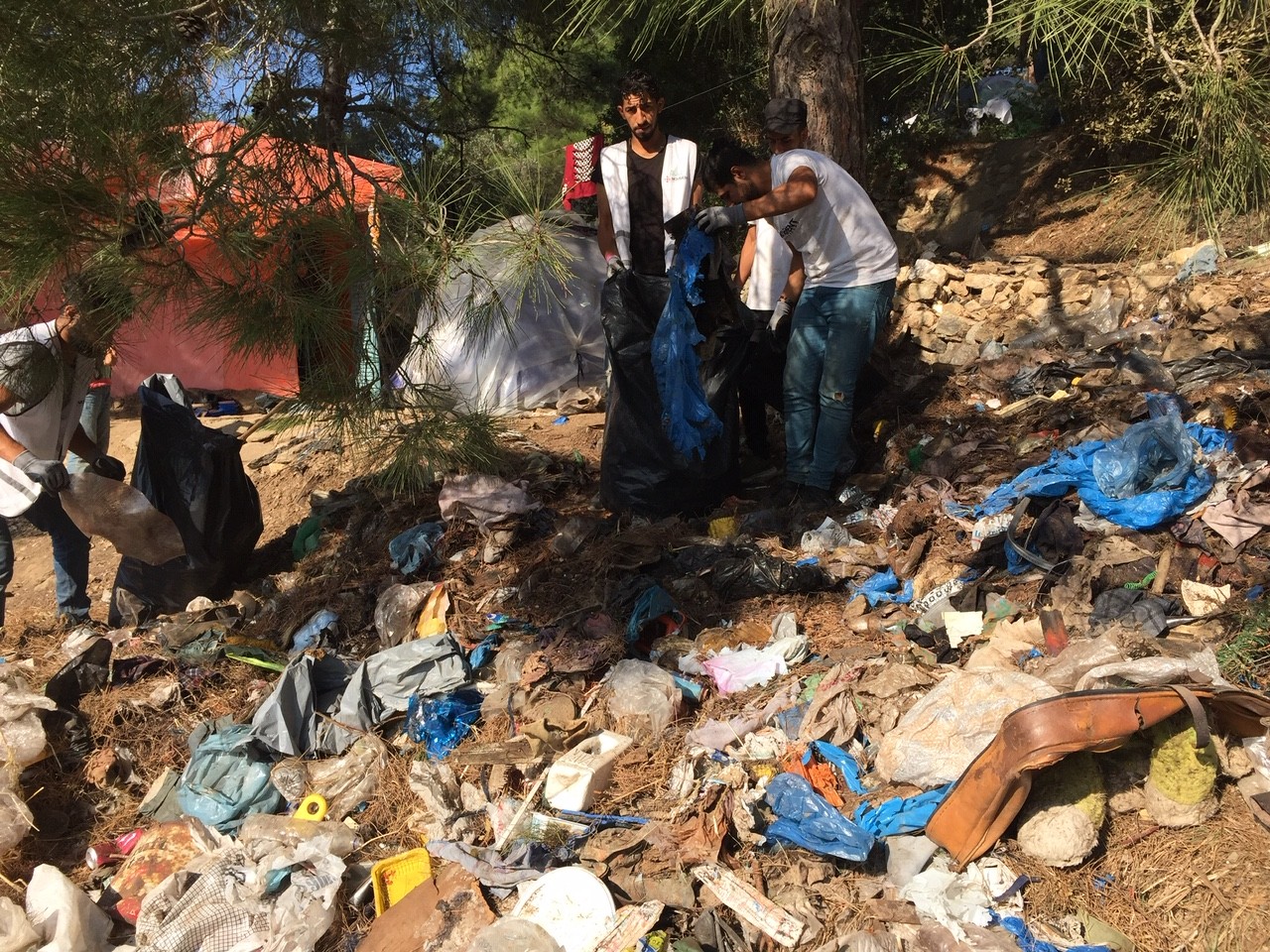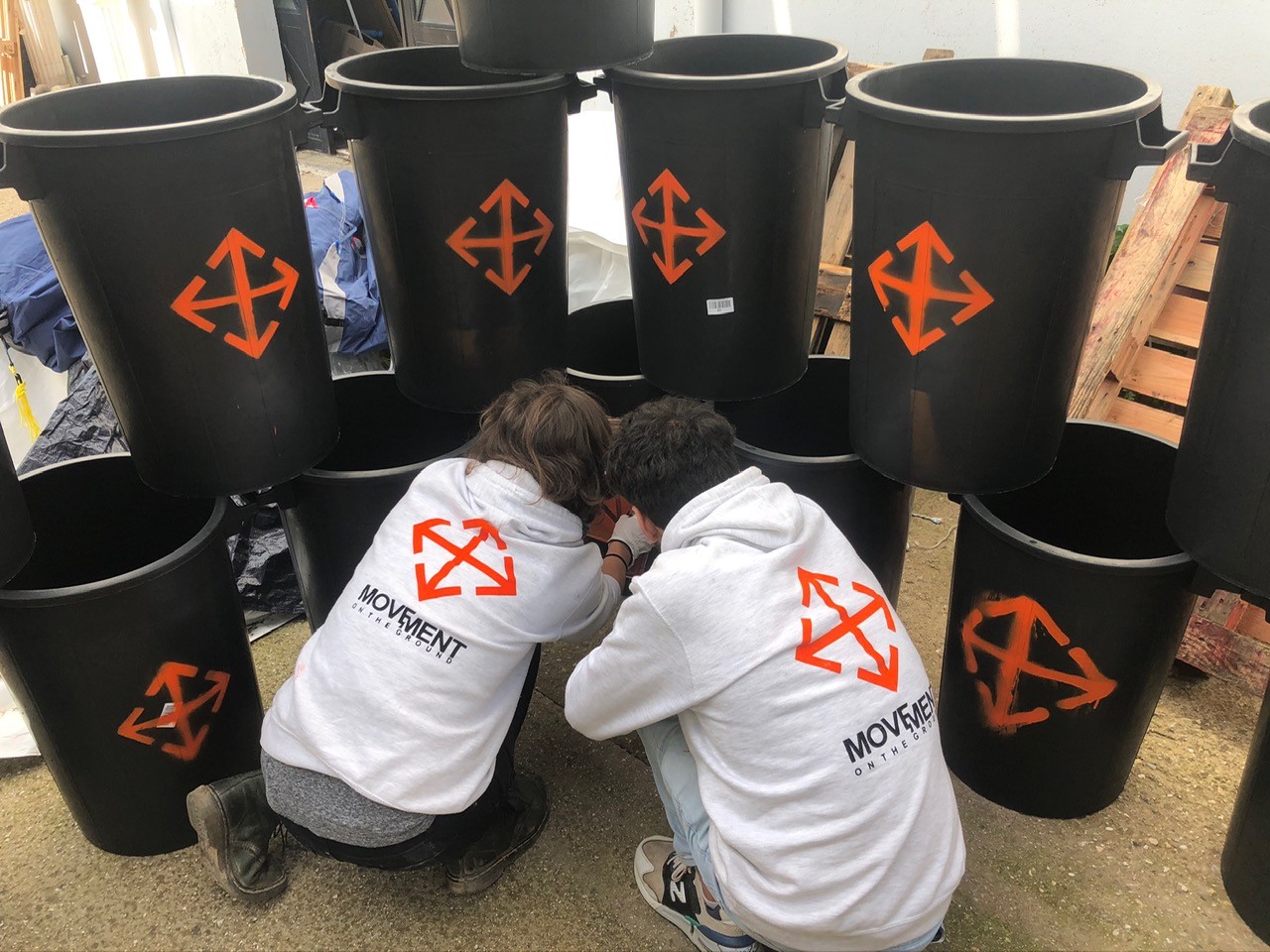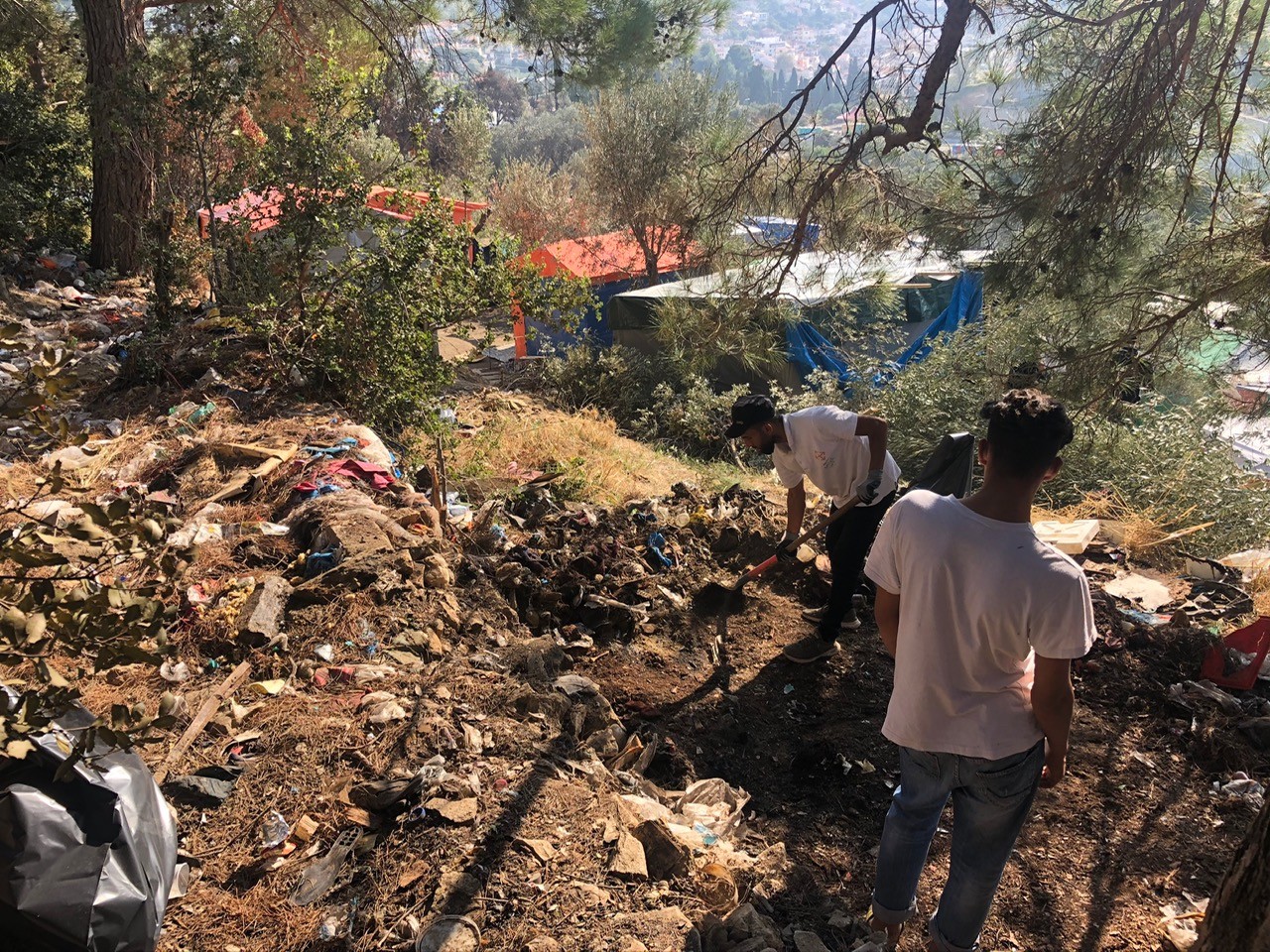Our mission at Movement On The Ground (MOTG) is to redefine refugee camps globally in order to make them more dignified and sustainable. This ‘Camp to CampUs’ philosophy incorporates waste management as a key pillar.
The inclusion of waste management within our model stems from the recognition amongst residents, locals and coordinators that unmanaged waste poses a significant hazard to the health and wellbeing of those living on the island. This is revealed through the following overview of the implementation of MOTG’s Waste Management Project in Samos.

In July 2020 alone, we assisted in cleaning and properly disposing of 50 tonnes of waste from the outskirts of Vathy camp on Samos.
You can support our waste management efforts by donating towards our mission.

Why is waste management in Samos so important?
In Samos, up until April 2019 there were no bins in the so called ‘Jungle’ (the rural area surrounding the camp where people have built their own shelters). However, when the waste management needs of 6100 people who reside in a 650-capacity camp are not addressed, the living space starts to pose a serious risk to residents.
Consequently, the unmanaged waste on Samos started to attract large quantities of rats and snakes, resulting in many camp residents suffering snake bites to their faces and bodies.
It is a fundamental human right to have a clean and habitable surrounding and at MOTG, we believe that an efficient waste management system is critical in preventing health hazards and providing a safe, liveable environment to camp residents.

How did the Waste Management Project start?
The project started organically in April 2019 when our Samos coordinator, Martijn, responded to the issue by individually collecting waste and encouraging camp residents to also start litter picking. Initially, five to six Ghanaian residents became permanently involved in the task and by August 2019, the team expanded to 10 to 12 volunteers daily, many of who were from Syria and Afghanistan. Today, the resident volunteer team continues to work in conjunction with coordinators from MOTG to manage the waste on Samos.
How did MOTG address this ‘gap’?
MOTG have enabled residents to exercise their right to a clean-living space through installing 160 bins in the rural area surrounding the camp in Samos. The Waste Management Project allows residents to take a more active role in ensuring a hygienic, risk-free environment on the island. The project runs six days a week with staggered starting shifts beginning at 6am and 7.30am. A local Greek waste collection company is utilised to collect the waste three times a week on Mondays, Wednesdays and Fridays.

What impact has the Waste Management Project had in Samos?
Thanks to the team of 20 people working on the project, 600 to 650 bin liners are now filled daily. Over the six-month period between April and October 2019, MOTG have been able to coordinate the collection of 70,000 kilos of waste. The enhanced hygiene levels have resulted in the reduction of the snake and rat populations, meaning there are now fewer critical health hazards linked to unmanaged waste. Overall, the project has had a positive effect on the entirety of the island, residents, locals and coordinators included.
The Greek population of Samos has also financially benefited from the Waste Management Project due to the demand for a local waste collection company and a wholesaler of garbage bags. The effective management of waste in Samos has also addressed some of the Greek landowner’s concerns regarding waste removal and has been perceived by the local community as “a beautiful project”. The project has even encouraged those inside and outside the camp to work together.
The Waste Management Project has also provided an opportunity for further team building and engagement between the camp’s residents and coordinators. Sharing a meal after a long week of garbage picking together is seen as an opportunity to “laugh and chat a lot” and provides a sense of equality between MOTG coordinators and the residents.

Tackling the issue of unmanaged waste collaboratively has not only opened up opportunities between residents and coordinators but has encouraged social cohesion and acceptance between residents from different communities. Camp neighbours who previously had no interaction with each other can now be seen working together toward a common goal.
One of the greatest things we have witnessed is the sense of fulfilment and joy the resident volunteers have gained since being a part of the project. The residents involved with the Waste Management Project receive an education in practice about the hazards and environmental implications of unmanaged waste. They also receive water and energy bars during their work and get the opportunity to listen to music and dance together while completing their tasks. The residents involved are also rewarded for their efforts and after one week of voluntary help, MOTG coordinators and volunteers share a team meal. After a month of voluntary, MOTG provide internet data, clothing or another necessities to the resident volunteers based on their individual needs.
At MOTG we believe the Waste Management Project is critical in empowering residents to realise that if they act, they can make critical changes to their own environments.
How is the Waste Management Program reacting to the current situation on Samos?
Over the last six weeks there has been a significant influx of new arrivals and an expansion of the ‘Jungle’. We are responding to the emergency situation within camps and now have two new resident teams who have ordered another 50 bins to manage the excess waste that will come from these new arrivals.
Any contribution helps us in our mission to provide a dignified, innovative and sustainable response to the refugee crisis that benefits both refugees and host populations.
I want to donate
Choose an amount
I would like to donate using
Payments are securely processed using Buckaroo. No payment details will be stored by us.
